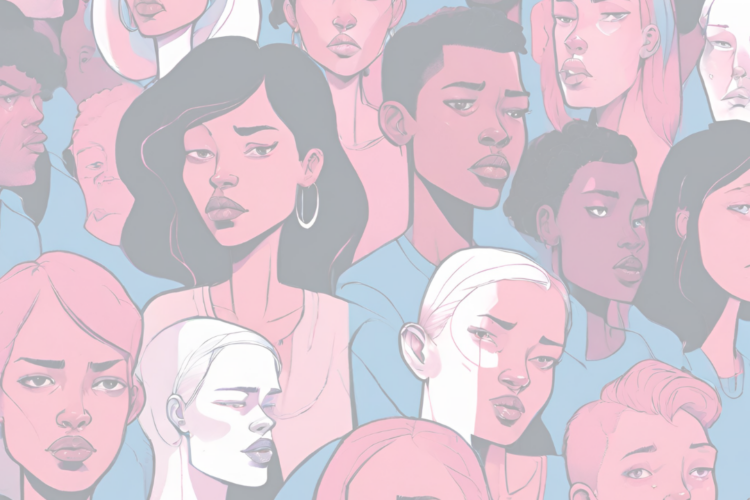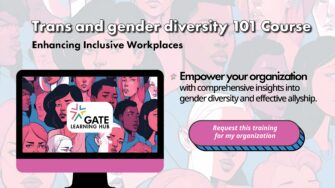Trans and gender diverse individuals are chronically left behind in global health and human rights services and programs. There is a lack of trans-informed and trans-led consolidated resources on which various stakeholders can build relevant services and programs. To solve this problem, GATE developed a Trans and Gender Diversity 101 online course, in which you’ll explore historical and cultural contexts, community priorities, and strategies for stronger support and informed allyship.
What you’ll learn:
- A clear and current understanding of gender diversity
- Insights into the unique challenges faced by trans and gender diverse people around the world
- Practical tools and real-world strategies to support and advocate with authenticity
Who is this Training for?
Whether you’re an individual eager to understand trans terminology, challenges and priorities or an organization committed to meaningful inclusion, TGD 101 is your essential guide to understanding trans and gender diversity in today’s world.
What are the learning modules about?
Trans and Gender Diversity 101 is divided into 5 modules:
MODULE 1
- Understanding Sexual Orientation, Gender Identity and Expression, and Sexual Characteristics
- Sex Assigned at Birth vs Gender Identity and Expression
- Gender Diversity Terms and Terminology
- Pronouns and Language
- The Importance of Self-Identification
MODULE 2
- Gender Diversity Around The World
- Recognizing Ancestral and Pre-Colonial Gender Diversity
- Understanding Intersectionality
MODULE 3
- Stigma and Discrimination
- Human Rights Based Approaches
- Legal Gender Recognition
- Public Health Disparities
- Anti-Gender Movements
MODULE 4
- Allyship
- Strategies for the Public Health Workforce
- Strategies for International Development and Human Rights Mechanisms
MODULE 5* Optional
For organizations only: In-person or virtual live workshop delivered by GATE staff and partners to refresh all knowledge gained. Includes interactive sessions with trans and gender diverse people with Q&A.
Who developed the training?
The curriculum was designed by Mahri Bahati, MPH, supported by a trans and gender diverse Steering Committee composed of Alma Aguilar Betancurt, Charlie Moldaver, Malak Elhamidy, Mira Tay, Natt Kraipet, Özge Sofia Aldynay Brandt, Raphael Oyeniyi, and Vihaan Vee.
By the end of this training, you will have a better understanding of the community needs and priorities of trans and gender diverse people around the world, as well as concrete recommendations on how to be an ally.
Are you ready to deepen your knowledge and take meaningful action?
Course fee for individuals: $50 USD donation via GATE Learning Hub [link to course]
Group enrollment: Looking to train your team on trans and gender diverse issues? We offer custom options for organizations — contact us at info@gate.ngo to get started.






